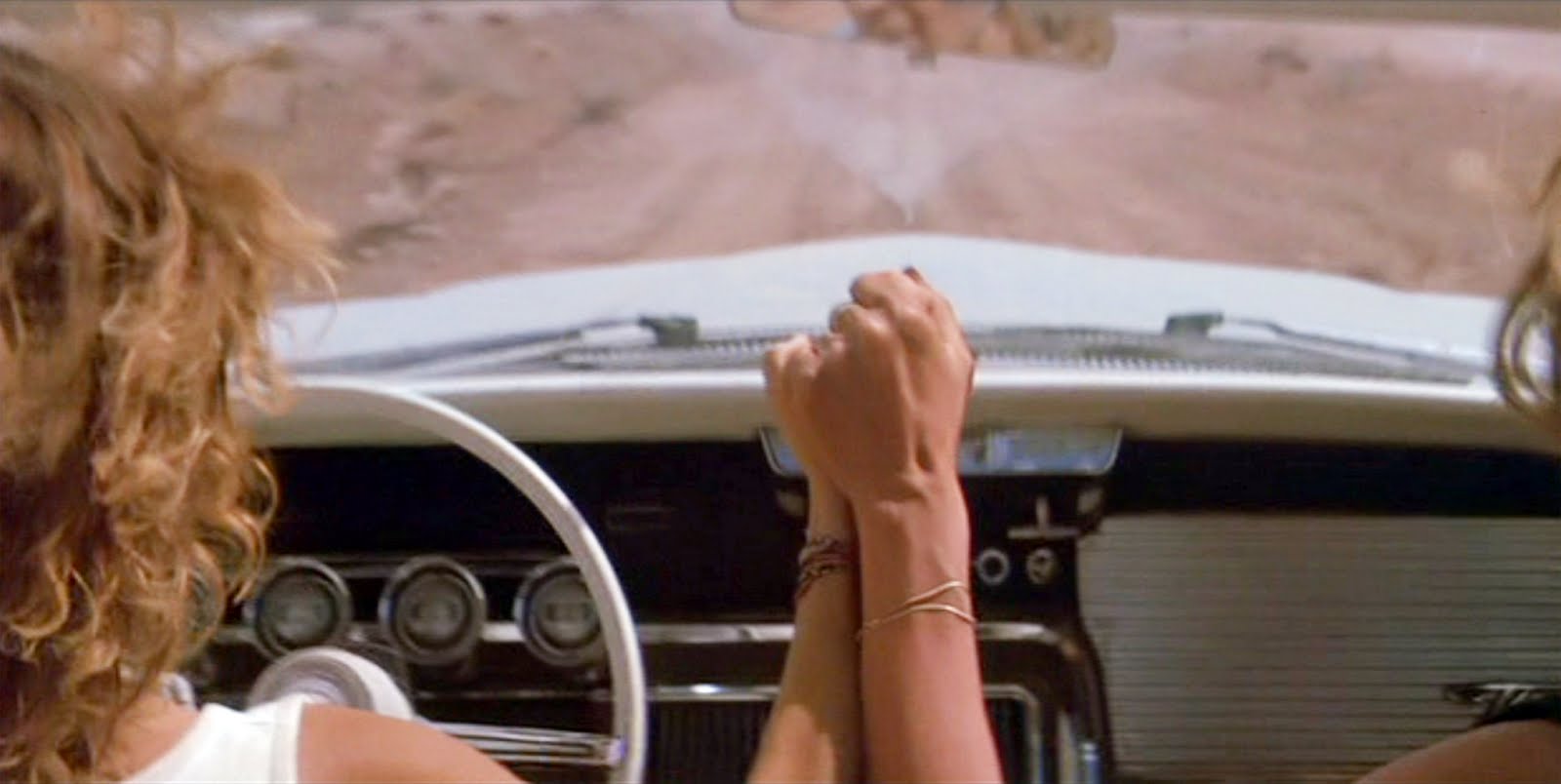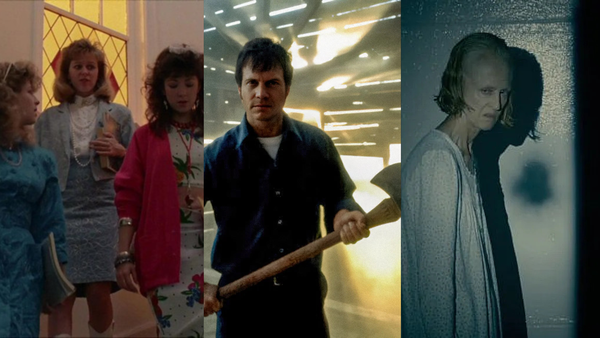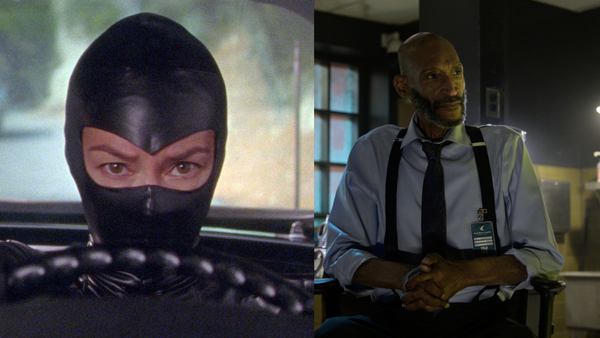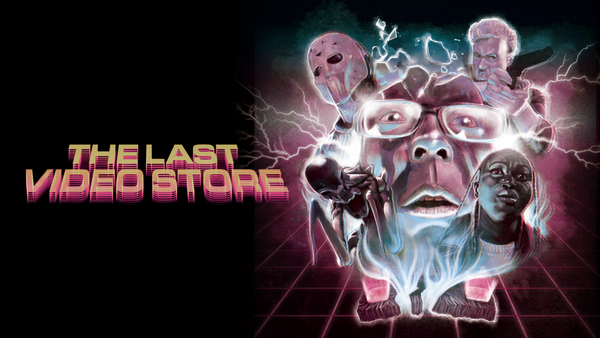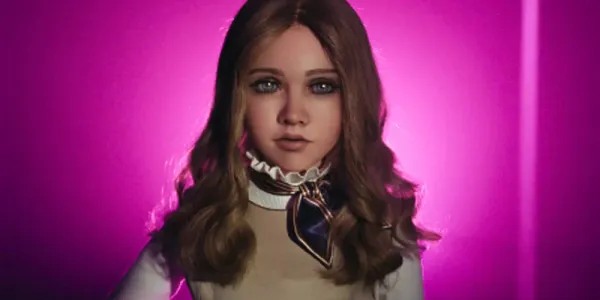'90s Rewind: Thelma & Louise
I don't remember ever feeling this awake.
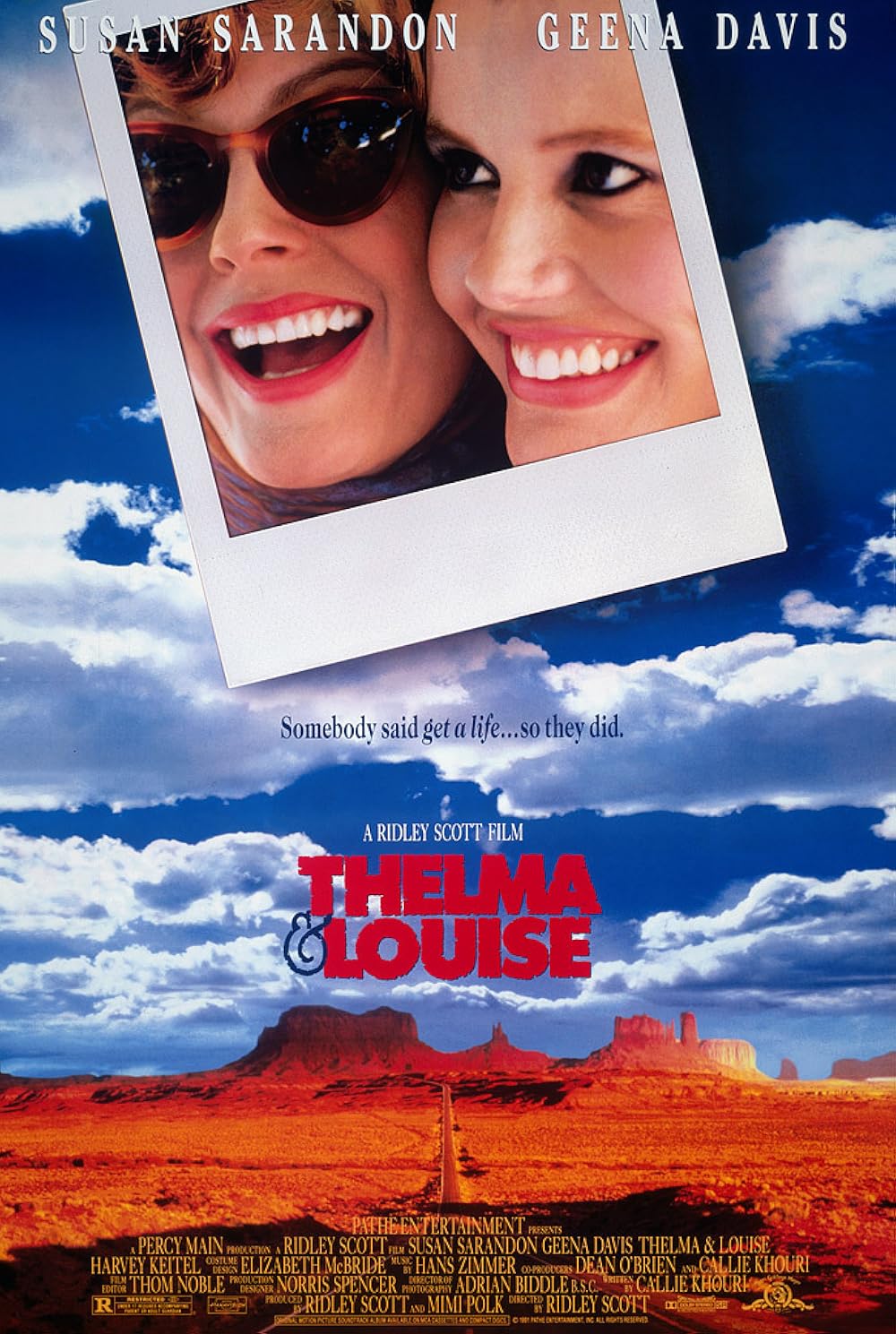
As “The Horror Chick,” I know most people would expect me to write about Ridley Scott’s Alien since that seems like it is in my proverbial wheelhouse. And sure, Alien is my favorite film from Scott. But my second favorite movie from the legendary filmmaker is 1991’s Thelma & Louise, and a recent rewatch of it knocked me on my ass so hard that it made me want to write about it, so here we are.
I’m old, so I did see Thelma & Louise in a theater back in the early ‘90s, as my friend Hope and I went to see it one afternoon at the Classic Cinemas in Elk Grove (the only R-rated film we ever had problems getting into at that theater was Silence of the Lambs). From there on out, we nicknamed each other “Thelma” and “Louise” (I was Louise), and we affectionately called each other that probably until the mid-90s when we started to drift apart (I had moved and teens were hella busy living their lives offline back then, so life just sort of happened).
But Thelma & Louise became a huge moment in my life back then as a 13-year-old kid still trying to figure things out, as it wasn’t often that you’d see movies that embraced female characters like Thelma Dickinson and Louise Sawyer. And as the saying goes, hell is a teenage girl, so I am still grateful to this day that a movie like Thelma & Louise came along at just the right time for me because it left a huge impression as I began to navigate my tumultous teenage years.
Lately, I’ve been letting Pluto determine my viewing habits when I’m working, and the other day, Thelma & Louise came on. It had probably been well over a decade since I last watched it, and with this viewing, my appreciation for this classic lady-driven road trip movie that perfectly celebrates the unbreakable bonds of female friendship grew in new ways.
So much of this comes from Callie Khouri’s brilliantly crafted script which brings these endlessly fascinating and flawed women to life in ways that challenged societal constructs during the early ‘90s and even now. And the way Khouri tackles the sensitive topic of rape feels extremely thoughtful and nuanced as well, making it one of the most important stories to come out of this era of cinematic storytelling.
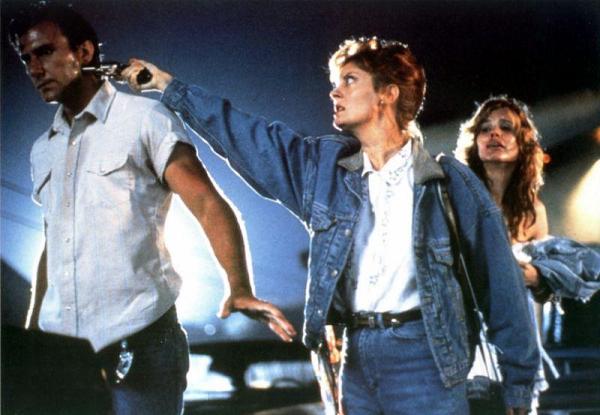
There’s this moment when Louise tells Thelma she needs to get a cup of coffee and have some time to just stop and think about what comes next after she kills Harlan, and we see both of these characters wearing the aftermath of the events that have just transpired all over their faces. Both women are grappling with their situation in their own way, but Thelma is definitely in a more fragile state as she was the one who was violently attacked and is still visibly shaken up.
This scene is incredibly important because, for a brief moment, there is a part of Louise that wants to blame her friend for going into full-blown “wild child” mode and acting so recklessly which leads to the situation they find themselves in. You can see Louise preparing to lecture her friend for making such bad decisions, but she stops herself. The reason why this is so important is that Louise understands that it doesn’t matter how Thelma was acting, or what she was wearing, or how drunk she got — what happened to her should have never happened regardless of her drunken demeanor.
And back in the early ‘90s, this is such an important distinction to have Louise make, because we know that rape is an unacceptable act regardless of any “inviting” circumstances but at that time, society still liked to point its finger at the victim (the harsh truth is that it still does today, more often than not).
Just a few years before Thelma & Louise, Jonathan Kaplan’s The Accused was released and became a very monumental moment in the ongoing discussion of how society viewed rape and how victims were often blamed for these violent attacks against them. So, in many ways, Khouri’s script for Thelma & Louise kept this important conversation going, with audiences seeing that regardless of the circumstances, sexual violence should never be condoned.
Later on in the film, Thelma even tries to blame herself for Harlan’s behavior, and Louise stops her immediately, which is another thoughtful touch from Khouri’s script, as it subtly demonstrates just how any judgment that Sarandon’s character may have been feeling initially no longer exists.
We also learn later on in the film that the reason Louise refused to travel through Texas is because she had been raped there earlier in her life, and returning to that state would be very traumatic to her. Beyond the fact that Khouri’s story demonstrates how pervasive sexual violence is in society, this also perfectly demonstrates the burden that so many people who have been sexually assaulted are forced to bear throughout their lives. The violence that assault victims have endured usually continues to haunt them regardless of whether or not they have been able to move forward with their lives or not, and it can even impact someone as “logical” and “level-headed” as Louise.
The fact of the matter is that these acts change our DNA in both small and big ways, and for Louise, what happened to her affected her ability to escape to Mexico before the law could catch up to her and Thelma. These women are strong and capable but that doesn’t mean they don’t have a few dings in their armor that make them vulnerable just the same. It’s also worth noting that the amazingly brilliant Tori Amos was inspired to write “Me and a Gun,” a song that recounts when she was raped in the 1980s, after seeing Thelma & Louise.
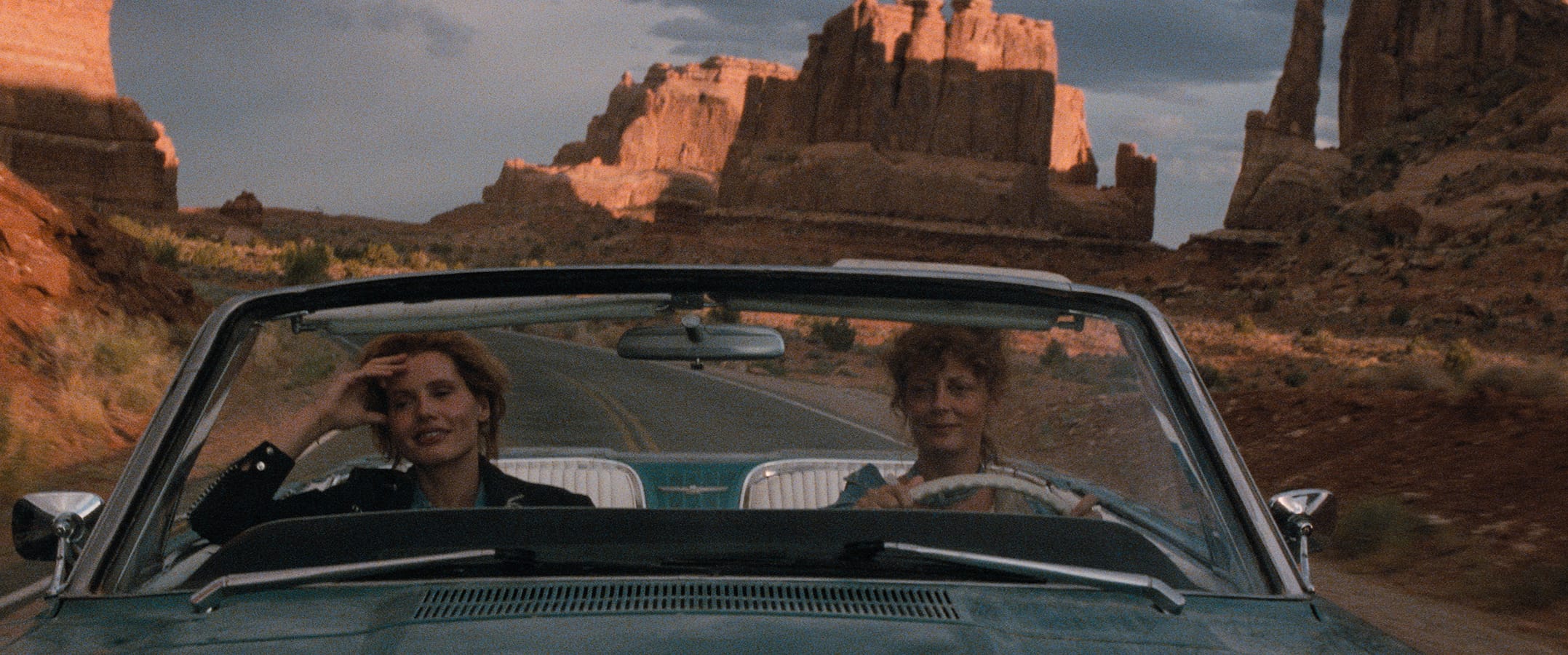
There’s no denying that Thelma & Louise felt revolutionary when it was released in 1991 simply because society hadn't willingly embraced or celebrated these types of messy women — and honestly, I don't know if that's changed much in the nearly 35 years that have followed. Both of these titular characters were raw, complicated, flawed, and both ordinary and extraordinary in equal measure. Geena Davis and Susan Sarandon’s beautifully nuanced performances here made their characters so completely relatable to women from all walks of life simply because of how grounded their experiences feel throughout this journey courtesy of Khouri’s thoughtful screenwriting approach.
We can understand Thelma and Louise's frustrations against a society designed to box women in, hold them down, or even harm them, and it is cathartic to see these two outlaws (so to speak) giving all of these institutions the proverbial middle finger through all of their actions as they take matters into their own hands.
And sure, it's likely that most of us haven't held up a convenience store, or shot a rapist, or blown up a tanker truck in our everyday lives. So while most of us have never found ourselves in the same predicaments as these two fierce females did during their ill-fated friendcation, we just “get them” on a human level. And while there are a lot of issues that women have to struggle through daily, I don't think it's too much of a stretch to say that we all know what it feels like to be victimized, or to be demeaned, or to be disrespected, or underestimated, or even underappreciated by people we love — regardless of our gender.
But even though these are universal experiences, there is something very specific about those hardships when women are forced to bear these burdens and do the hard work, and the journey that the eponymous characters go on throughout Thelma & Louise perfectly reflects the delicate balance women often have to strike in our lives: be fun, but not too much fun; be smart, but not too smart; be independent, but not too independent; be strong, but not too strong; be sexy, but not too sexy. You get the point. The female experience is often complicated at best.
It’s pretty remarkable that many critics at the time called Thelma & Louise out for portraying the female experience in the film as some kind of extremist statement on society. But the reality of it all is that Callie Khouri’s script wasn’t asking audiences to do anything more than to give these female characters the same kind of grace and empathy that they would give their male cinematic counterparts. As it turns out, that’s a pretty radical idea, even now, making Thelma & Louise both timely and timeless — a rare feat for any movie.
In many ways, women just cannot win even if they're playing by society's rules and I think that's what makes the ending of Thelma & Louise so powerful. As a teen, I remember thinking that these women driving off the edge of the cliff and plummeting into the rocky depths of the Grand Canyon was kind of silly — surely imminent death couldn't be better than spending some time in prison, right? The thing is, when you're young, you still have a lot to learn, so even though I was a pretty smart kid who could handle herself in situations far beyond her years, I was also dumb, too. We all are when we are growing up; that’s just how it goes.
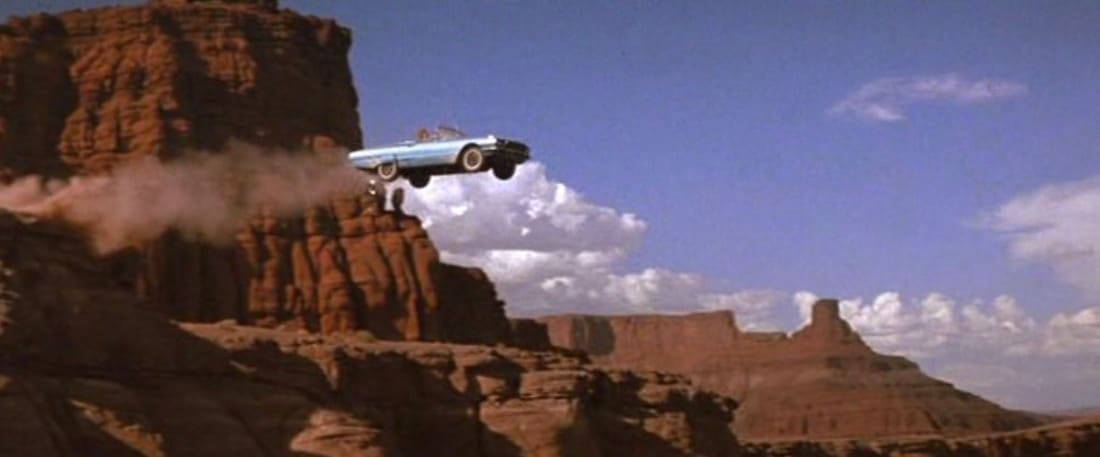
It took decades of gaining my own personal experiences to truly understand the "why" of Thelma & Louise's conclusion, which now makes it so much more thematically effective in retrospect. For these women, living the rest of their lives incarcerated just wasn't an option — they didn't deserve that fate and in many ways, they were already living in an existence that felt closed in as it was. And hell, considering the states that they were driving through during their journey, chances are, they probably would have been given death sentences anyway due to draconian laws and heavy-handed lawmakers at that time who would no doubt want to make "an example" out of them regardless of Harlan Puckett’s malicious misdeeds that drove them to fight back in the first place.
But the reality is that driving off to meet their maker wasn't just about trying to avoid prosecution or jail time, it was about these women being able to finish their story on their own terms. They weren’t about to sit around and wait for society to twist things into some sort of morality pretzel to help solidify messaging like, "See, women really shouldn't have THAT much freedom — here's why!" Or their story would become perfect fodder for an organization like the Christian Coalition to be able to declare that husbands need to have a better handle on their wives or they'll turn out like Thelma and Louise (THE HORROR!).
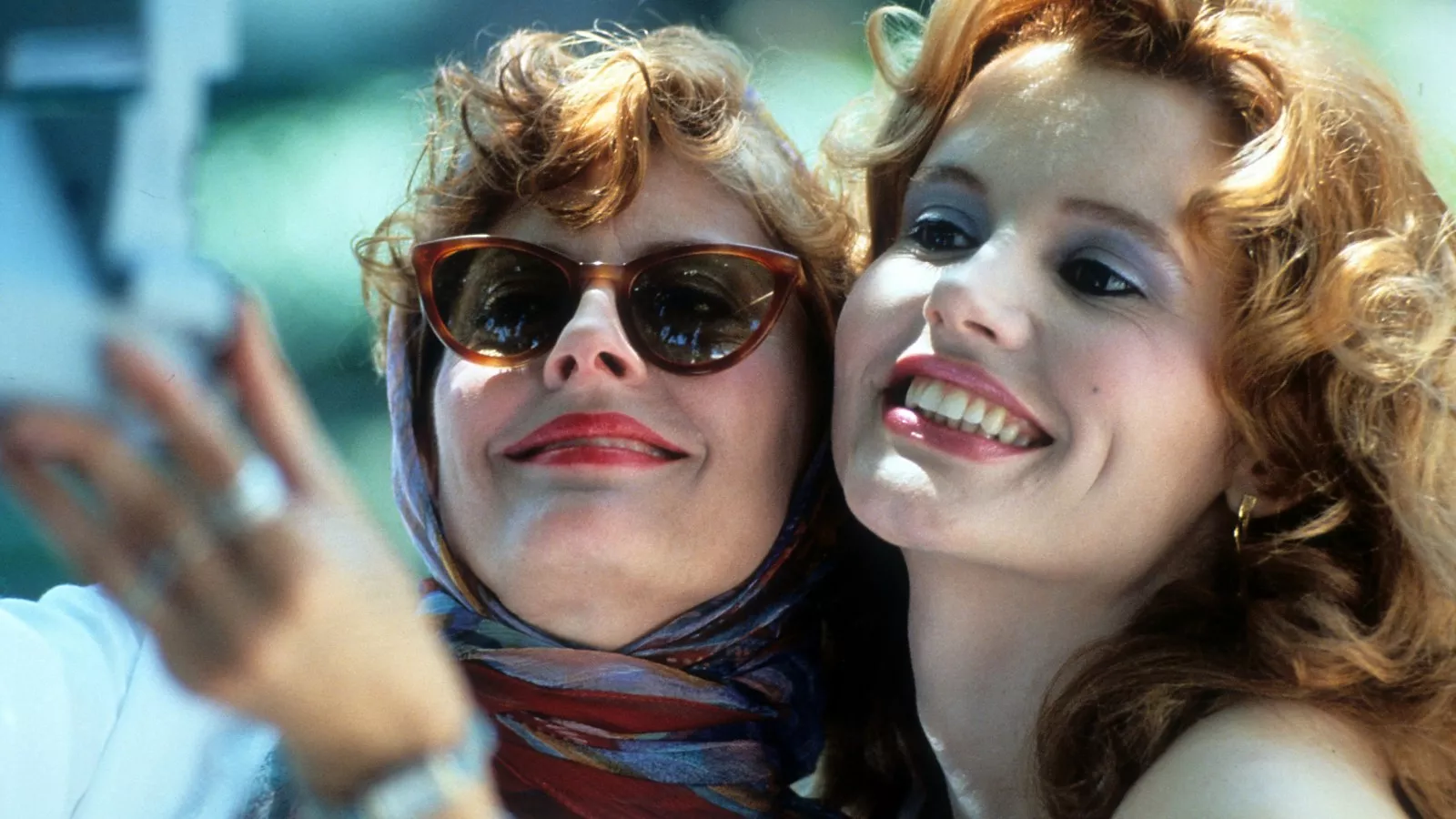
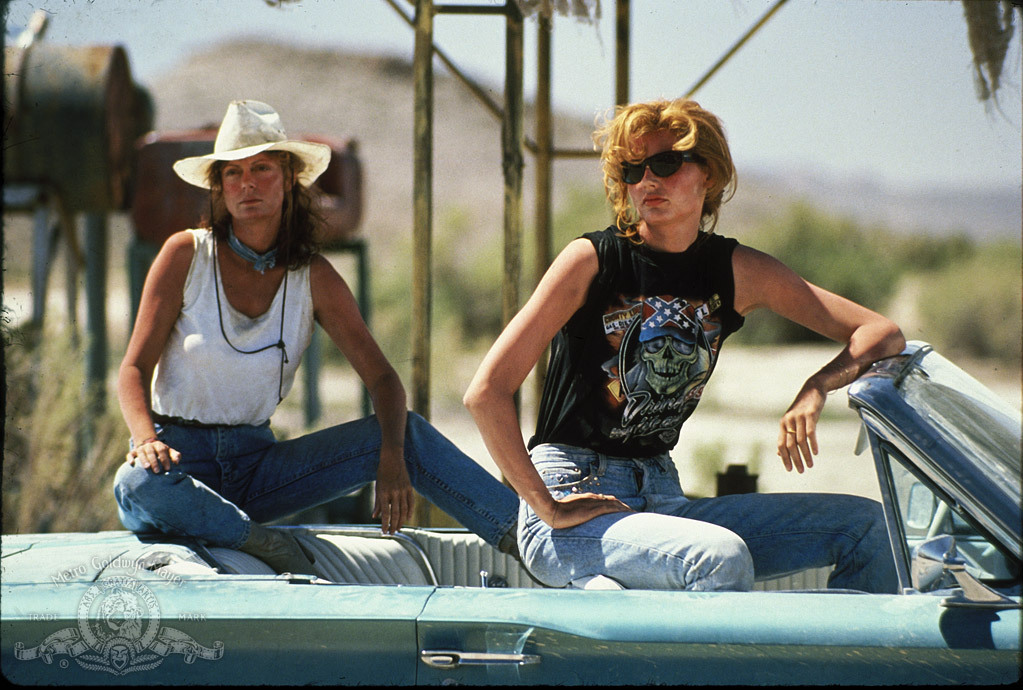
Something else that I appreciate about Thelma & Louise is how these characters transform on a visual level, as we see both of these characters being de-feminized over time. We see the usage of makeup being minimized. Thelma, who starts out on the trip wearing a super fun all-white frilly dress set is dressed in jeans and a t-shirt that you could only find at a Flying J Truck Stop by the time we get to the film's third act. With Louise, we have seen her character as someone who is meticulously attentive when it comes to all kinds of details in her life, and she starts her journey wearing a scarf over her head to keep her hair under control. But by the end of Thelma & Louise, her hair is loose and all mussed up and her clothes are even a bit dirty, with her neckerchief being the perfect accessory for life out on the road.
I also love how the women collect items from men throughout their travels, whether it's sunglasses or hats, and then they adopt them into their own appearance. There's just something so quietly empowering about that kind of dynamic and it's a great touch to the ongoing development of both of these characters throughout this story.
There are a lot of important reasons why Thelma & Louise resonated with me back in 1991 as a teen looking to understand just how I fit into the world, and the themes at the heart of Khouri's story have continued to influence me well into my adult years as well. But there's also this silly thing about it that I have always loved so much and found so inspiring: I just adore road movies about women because we don't get them all that much and I believe that Thelma & Louise is the reason I love road trips as much as I do.
If given the choice, I would much rather spend a few days out on the road than I would a few hours at an airport. I love driving so much, and I think a lot of that comes from how this activity is portrayed as an act of freedom in Thelma & Louise. Could I fly to Utah in less than 2 hours when I was living in L.A.? Sure. Would I have more fun driving for 11 hours instead? Absolutely. Would it be easier to fly from Southern California to places like Chicago or Austin and be there in under 4 hours? No doubt about it. But am I going to enjoy taking the time to get back to "myself" as I am driving my way through a number of states much more? Hands down, for sure.
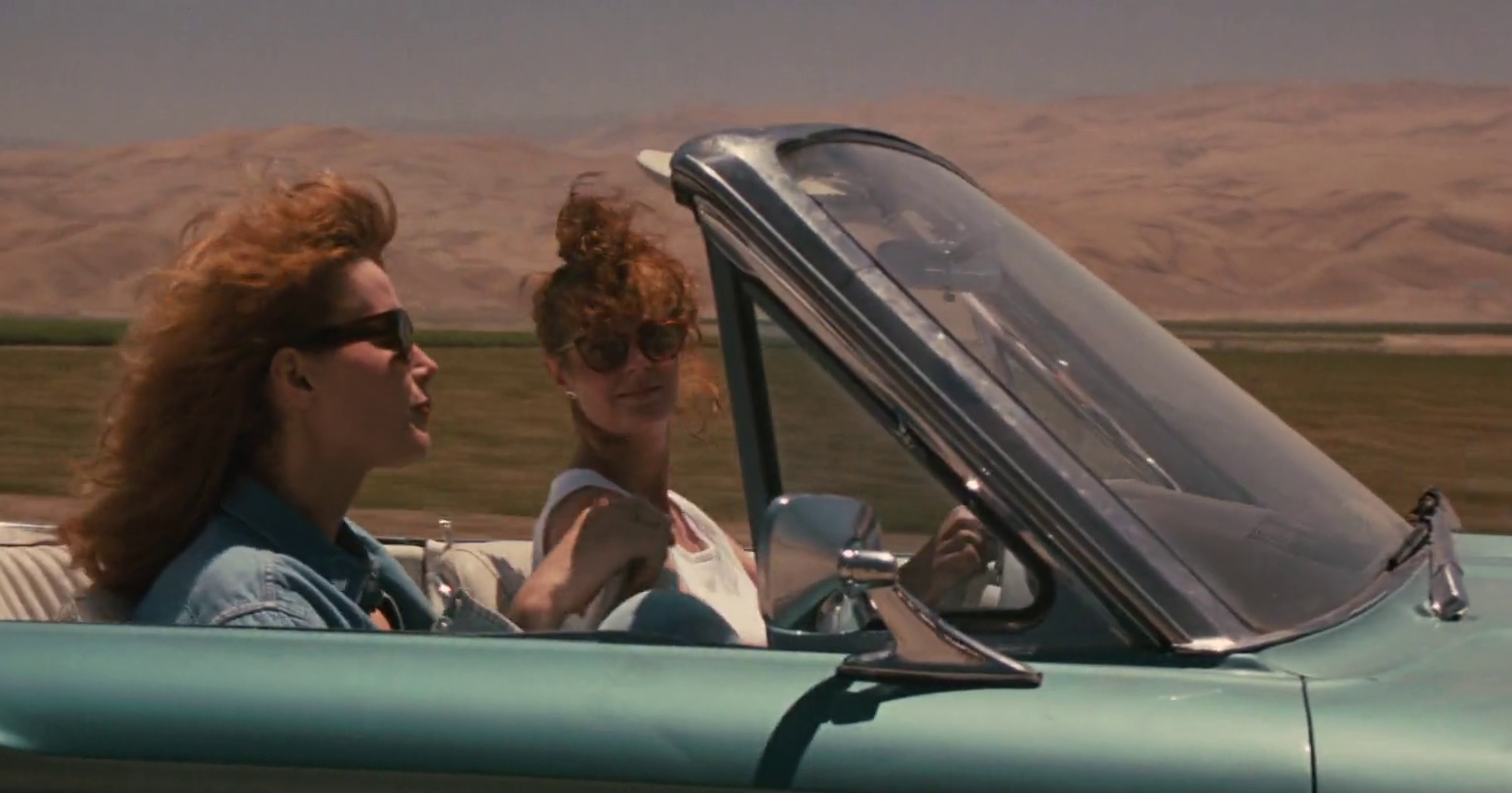
Admittedly, it's probably not the safest form of travel when you are a woman traveling alone (I always have pepper spray and a knife on me at all times just to be safe) but I make sure that I'm always making the best decisions I can when it comes to travel safety whenever I'm out on the road. I mean, if Thelma & Louise taught me anything it’s that you cannot be too careful when you put yourself out there. But I just love road trips with all of my heart and I don't ever want to give them up until I have to. In fact, I mentioned in my tribute to Los Angeles that just driving up and down the PCH was something that often helped me and my better half center ourselves when we needed a reset. That's the same feeling I get when I get to take a road trip.
As someone who spends most of her time on a laptop of some sort (no joke, I currently go back and forth between 3 different laptops: one for my day job, one of the work I still do for the full-time job I used to work in L.A., and then there's my personal laptop which is where I do all my writing), any opportunity that I can find to untether myself for any amount of time from technology for the most part (I do still have a phone, after all) is one that I genuinely relish. And road trips do just that for me.
Also, I don't know if it's because I am a Midwesterner whose vacations growing up were always to see my grandparents in West Virginia via Greyhound or Amtrak, but I just feel so more "me" when I'm traveling via ground transportation. I love driving through small towns, wondering about people's lives as I see random strangers here and there whenever I stop. I love looking out at farms from the highway and trying to figure out what's growing or being harvested. I love stopping at local eateries when I can so I can try something new because when else am I going to get this opportunity? I just don't know. There's an uncertainty to life that makes you realize that you have to seize opportunities when they present themselves, and that's something we see throughout Thelma & Louise, it's just portrayed in some non-traditional ways here.
But for me, life is all about “the experience.” And Thelma & Louise is a film that is very much about “the experience.” These women could have easily just stayed where they were in Arkansas, but they both desperately yearned for something more out of their respective lives. Both Louise and Thelma needed time away to stretch their wings and do something beyond the constructs of their lives. And craving something more is a desire that most of us share, even if our destinations may differ from others. But that need for exploration in whatever form it may come in — whether it’s a new book, a new movie, a new song, a road trip, whatever — is what leaves me feeling fulfilled as a human being. I want more experiences, I want to evolve, and I want to get as much as I can out of my life and out of this world while I am still able.
So here I am, in my late forties and my life is this weird dichotomy where I still yearn for freedom and the ability to control my destiny as best as I can. But at the same time, my life at home is incredible and I don't mind being tethered all that much either. I have an amazing partner, two of the most ridiculously adorable dogs ever, I live in a great place where I see mountains every single day (and some nights, I get to enjoy coyotes howling right across the street from me), and I have a really great day job that constantly challenges me in ways that allow me to grow professionally. The reality is that, for as hard as things may get, I'm still happy and I recognize that all of that is a gift.
And yet, there is a part of me that yearns for that open road, to be able to put the windows down, crank the radio up and just lose myself on the highway while I drive without a care in the world. Life is so stressful and I love that for as much that gets thrown at both Louise and Thelma in the movie, there are still moments as they are driving that feel like pure bliss for these characters. I understand that feeling on so many levels.
I just think it’s pretty remarkable that the impact of a movie like Thelma & Louise can continue to evolve in how it impacts you over time. This was a movie that initially felt like a cinematic permission slip of sorts that told me that it was okay to not be perfect at a time when I thought differently. I desperately needed something like that. And as I got older, Thelma & Louise allowed me to understand that sometimes you need to be a little radical in order to find happiness in this world and that you don’t need to wait for permission to take control of your life, no matter what anyone else tells you.
Rules are made to be broken, and Thelma & Louise broke them all.
